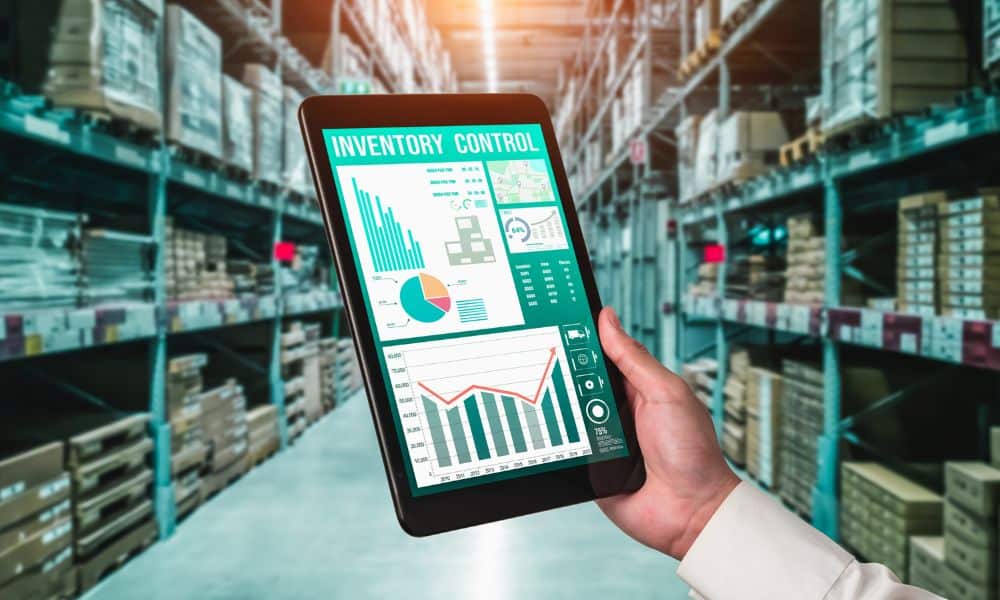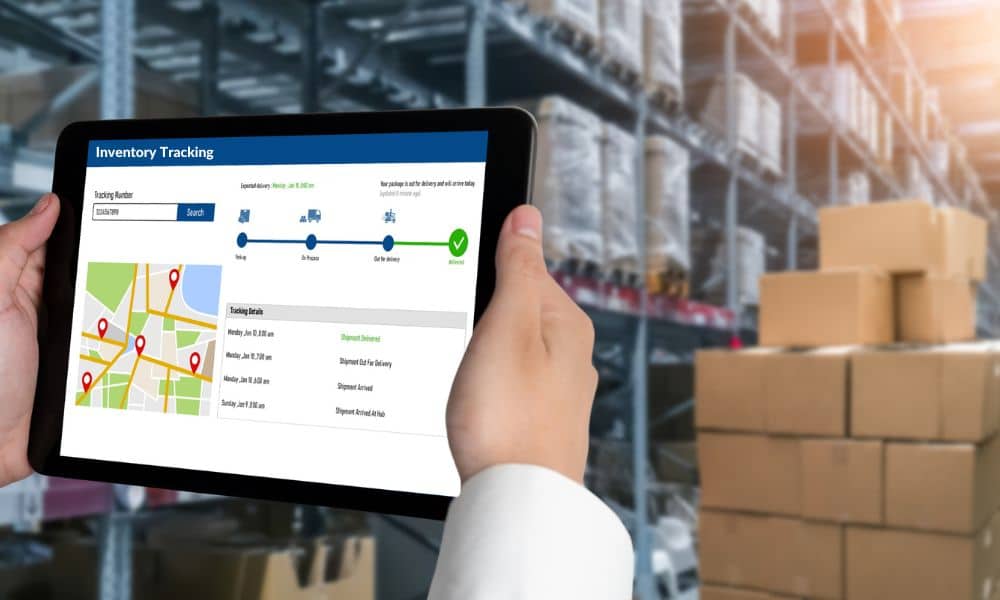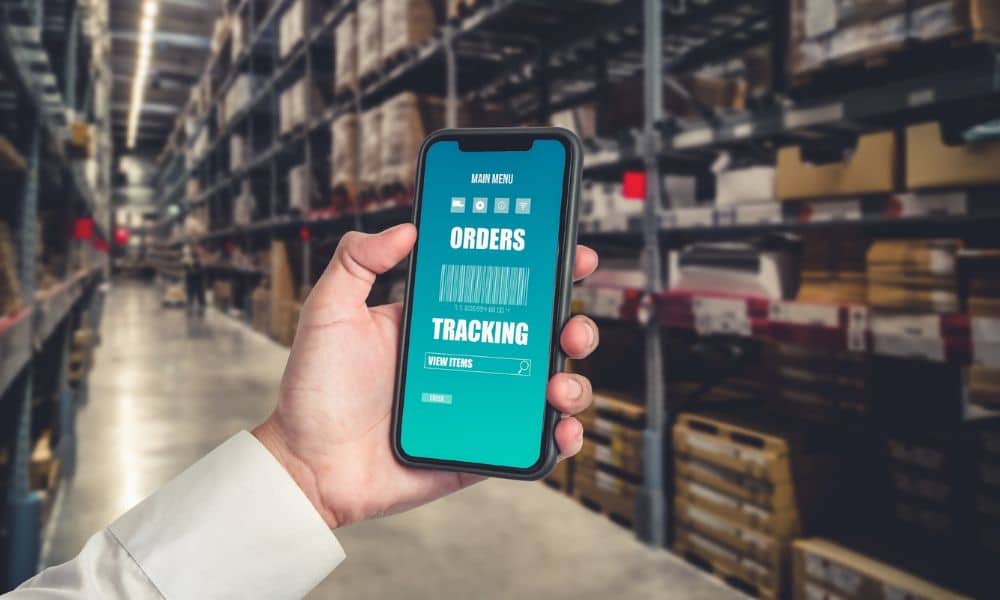Exploring the Best Warehouse Inventory Management Software: Boosting Efficiency and Streamlining Operations

Want to learn about warehouse inventory management software? Read the article to know all the details related to it and more.
Effective warehouse inventory management is crucial for businesses to maintain accurate stock levels, minimize errors, and optimize order fulfillment. To achieve these goals, businesses can leverage the power of warehouse inventory management software. This article dives into the world of warehouse inventory management software, highlighting the top solutions available in the market, their key features, benefits, and FAQs to help businesses make informed decisions.
What is Warehouse Inventory Management Software?
Warehouse inventory management software refers to a specialized digital solution designed to effectively track, control, and optimize the inventory stored within a warehouse or distribution center. It provides businesses with the tools and functionalities necessary to streamline inventory-related processes, manage stock levels, monitor stock movements, and ensure accurate order fulfillment.
This software typically offers features such as real-time inventory visibility, order management, warehouse organization tools, inventory forecasting, and reporting capabilities. Its primary purpose is to help businesses maintain optimal inventory levels, improve operational efficiency, reduce costs, and enhance overall warehouse management and productivity.
Purpose of Using Warehouse Inventory Management Software
Streamlined Inventory Control

Warehouse inventory management software allows businesses to efficiently manage and control their inventory in real-time. It enables accurate tracking of stock levels, locations, and movements, ensuring inventory is always up to date and easily accessible.
Efficient Order Fulfillment
With the help of inventory management software, businesses can process orders more efficiently. It provides visibility into available stock, enabling businesses to fulfill customer orders accurately and on time, reducing the chances of stockouts or delayed deliveries.
Also Read: Inventory Management System Requirements
Inventory Optimization
The software helps optimize inventory levels by providing valuable insights into demand patterns, sales trends, and historical data. It enables businesses to make informed decisions about procurement, replenishment, and stock rotation, ensuring that inventory levels are balanced and excess stock is minimized.
Cost Control

Effective inventory management leads to cost savings. By having accurate visibility into inventory levels, businesses can avoid overstocking, reduce carrying costs, and minimize the risk of obsolete inventory. It also helps prevent stockouts, avoiding lost sales and the need for rush orders.
Enhanced Accuracy and Efficiency
Manual inventory management processes are prone to errors and inefficiencies. Warehouse inventory management software automates these processes, reducing manual data entry and human errors. It streamlines workflows, improves accuracy, and increases overall operational efficiency.
Importance of Using Warehouse Inventory Management Software
- Optimal Resource Utilization: By efficiently managing inventory, businesses can optimize the use of warehouse space, labor, and other resources. They can ensure that items are stored in the most suitable locations, reducing the time and effort required to locate and retrieve them.
- Improved Customer Satisfaction: Accurate inventory management ensures that businesses can fulfill customer orders promptly and accurately. This leads to improved customer satisfaction, as customers receive their orders on time and as expected.
- Data-Driven Decision Making: Warehouse inventory management software provides businesses with comprehensive data and insights into inventory performance. This enables data-driven decision-making, such as identifying slow-moving items, analyzing demand patterns, and optimizing stock levels based on sales trends.
- Scalability and Growth: As businesses expand, their inventory management requirements become more complex. Warehouse inventory management software is scalable, accommodating the growing needs of the business and providing a solid foundation for future growth.
- Compliance and Traceability: Some industries have strict regulations and require the traceability of inventory items. Warehouse inventory management software enables businesses to maintain accurate records and track the movement of items, ensuring compliance with industry standards and regulations.
Key Features of Warehouse Inventory Management Software
let us now look at some of the best key features of warehouse inventory management software.
Inventory Tracking

Warehouse inventory management software allows businesses to track inventory in real-time. It provides visibility into stock levels, locations, and movements within the warehouse, ensuring accurate inventory control.
Also Read: Small Jewelry Business Inventory Management
Barcode and RFID Integration
Integration with barcode and RFID technology enables businesses to scan and track items with ease. This feature enhances inventory accuracy, minimizes human errors, and speeds up the process of receiving, picking, and shipping inventory.
Warehouse Mapping
Warehouse inventory management software often includes a feature that allows businesses to create a digital map of their warehouse. This feature helps optimize storage space by identifying suitable locations for different items, reducing time spent searching for items, and improving overall warehouse efficiency.
Order Management
The software facilitates efficient order processing by managing order workflows from initiation to fulfillment. It enables businesses to create, process, and track customer orders, ensuring timely delivery and accurate order fulfillment.
Replenishment and Forecasting
Warehouse inventory management software assists businesses in determining optimal stock levels and replenishment needs. It uses historical data and forecasting algorithms to predict demand patterns, enabling businesses to avoid stockouts and optimize inventory levels.
Reporting and Analytics

Comprehensive reporting and analytics capabilities provide businesses with valuable insights into inventory performance. Businesses can generate reports on stock levels, turnover rates, order fulfillment metrics, and more. These insights help in making informed decisions, identifying areas for improvement, and optimizing inventory management strategies.
Also Read: Convenience Store Inventory Management
Integration with other Systems
Warehouse inventory management software often integrates with other business systems such as accounting, e-commerce platforms, and enterprise resource planning (ERP) systems. This integration ensures seamless data flow between different systems, reducing manual data entry and enhancing overall efficiency.
Serial and Lot Number Tracking
Some industries require tracking of serial numbers or lot numbers for specific items. Warehouse inventory management software includes features to track and trace items based on unique serial or lot numbers, ensuring compliance with industry regulations and facilitating product recalls if necessary.
Mobile Accessibility

Many warehouse inventory management software solutions offer mobile apps or mobile-friendly interfaces. This allows warehouse staff to access and update inventory data on the go using smartphones or tablets, improving mobility and productivity.
Alerts and Notifications
The software can send automated alerts and notifications to warehouse staff and management for various inventory-related events. This includes low stock alerts, reorder reminders, order status updates, and other important notifications to ensure timely action and smooth operations.
Best Warehouse Inventory Management Software Solutions
When it comes to warehouse inventory management, several software solutions stand out for their features and capabilities. Here are some of the best warehouse inventory management software solutions available:
- Oracle NetSuite: Oracle NetSuite is a comprehensive cloud-based ERP solution that includes robust inventory management features. It offers real-time visibility into inventory levels, automates processes such as order management and fulfillment, and provides advanced forecasting and demand planning capabilities.
- Fishbowl Inventory: Fishbowl Inventory is a popular inventory management solution designed specifically for small and midsize businesses. It offers features such as inventory tracking, barcode scanning, order management, and reporting. Fishbowl integrates with various e-commerce platforms and accounting software, making it a versatile solution.
- SAP Warehouse Management: SAP Warehouse Management is a part of the SAP ERP system and provides powerful inventory management capabilities. It offers features like bin and storage management, picking and putaway strategies, integration with material handling equipment, and advanced reporting and analytics.
- Zoho Inventory: Zoho Inventory is a cloud-based inventory management solution that caters to small and growing businesses. It offers features such as inventory tracking, order management, barcode scanning, and integrations with various e-commerce platforms and shipping providers. Zoho Inventory also includes basic accounting functionality.
- QuickBooks Enterprise: QuickBooks Enterprise is an accounting software solution that includes advanced inventory management features. It offers tools for inventory tracking, order management, and reporting. QuickBooks Enterprise integrates with other QuickBooks products, making it a suitable choice for businesses already using QuickBooks for their accounting needs.
- WMS360: WMS360 is a warehouse management system that provides comprehensive inventory management features. It offers functionalities like stock control, order processing, barcode scanning, and real-time reporting. WMS360 is highly scalable and can adapt to the needs of businesses of all sizes.
- Cin7: Cin7 is a cloud-based inventory management solution that integrates inventory control with point-of-sale (POS) and e-commerce capabilities. It offers features such as order management, warehouse management, and demand forecasting. Cin7 supports multichannel selling and provides real-time inventory visibility.
- 3PL Warehouse Manager: 3PL Warehouse Manager is a robust warehouse management system designed for third-party logistics providers. It offers features such as inventory tracking, order management, billing, and reporting. The software is scalable and can handle complex inventory and fulfillment requirements.
- TradeGecko: TradeGecko is a cloud-based inventory management software solution suitable for businesses in various industries. It offers features like inventory tracking, order management, purchasing, and reporting. TradeGecko integrates with popular e-commerce platforms and accounting software.
- Odoo Inventory: Odoo Inventory is an open-source inventory management system that provides a range of features for small and midsize businesses. It includes functionalities such as inventory tracking, order management, barcode scanning, and reporting. Odoo Inventory offers flexibility and customization options.

Maximize Your Online Business Potential for just ₹79/month on Lio. Annual plans start at just ₹799.
How Lio can Help You?
To make your dreams come true of having a business of your own and managing it nicely, Lio App can help you big time. The app lets you keep all sorts of data together in a more organized manner. You can keep records, and create tables and lists while working solo or with a team.
The many features of Lio would help you with your retail business as you would be able to maintain all data on a track that you can use at any time. If you want to upload a document, then you can do that. Know the money transactions, cash inflow, profit and loss you are making, Udhaar, list of products, services, and even the teammates and clients that you have all in one place.
Your retail business ideas will certainly become successful businesses if you go on this journey of managing your business with Lio.
Step 1: Select the Language you want to work on. Lio on Android

Step 2: Create your account using your Phone Number or Email Id.

Verify the OTP and you are good to go.
Step 3: Select a template in which you want to add your data.

Add your Data with our Free Cloud Storage.
Step 4: All Done? Share and Collaborate with your contacts.

Conclusion
In conclusion, choosing the right warehouse inventory management software is crucial for businesses looking to optimize their inventory control, improve operational efficiency, and enhance customer satisfaction. The availability of various software solutions tailored specifically for warehouse management provides businesses with the tools they need to streamline their operations and achieve better visibility and control over their inventory.
By implementing the best warehouse inventory management software, businesses can benefit from features such as real-time inventory tracking, order management automation, demand forecasting, and reporting. These capabilities enable businesses to make data-driven decisions, reduce stockouts and overstocking, improve order accuracy, and enhance overall warehouse efficiency.
Frequently Asked Questions (FAQs)
How does warehouse inventory management software benefit businesses?
Warehouse inventory management software offers improved inventory accuracy, streamlined workflows, enhanced order fulfillment, and optimized inventory levels, leading to increased operational efficiency and cost savings.
What features should I look for in warehouse inventory management software?
Important features include inventory tracking and monitoring, order management, warehouse organization tools, replenishment and stock control functionalities, inventory optimization capabilities, and warehouse automation integration.
Are warehouse inventory management software solutions scalable?
Yes, most warehouse inventory management software solutions offer scalability to accommodate growing businesses and increasing inventory volumes.
Can warehouse inventory management software integrate with other business systems?
Yes, many warehouse inventory management software solutions offer integrations with various business systems, such as ERP, CRM, or e-commerce platforms, for seamless data exchange.
How do I choose the right warehouse inventory management software for my business?
Consider your specific business requirements, evaluate the features and functionalities offered by different software solutions, assess pricing and deployment options, and read customer reviews and testimonials before making a decision.







